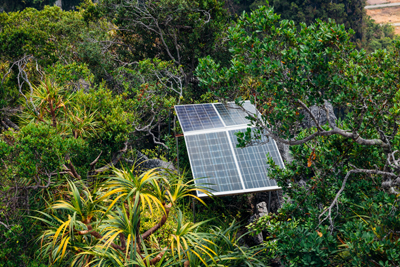本年度提出された77の研究提案をJASTIPで検討し、また運営委員会の承諾を得て、JASTIP-Net 2018は以下の19の提案を採択することに決定いたしました (研究代表者のみ記載しています。国名は代表者と共同研究者の国籍です)。各WPから、各提案への予算配分も含めた今後の実施体制についてのご連絡いたします。
Headquarters – Partnership and Networking (WP1)
| 1. | Vietnam“Community Gardening: Co-benefits of Protection of Natural Forest and Preservation of Herbal Medicine Profession of the Dao Ethnic Minority Community
Nguyen Thi Hoang Lien (Associate Professor, Vietnam National University) |
| 2. | Japan and Thailand“Constructing research network of adaptive governance of saline soil to halt land degradation in ASEAN countries”
Takashi Kume (Associate Professor, Ehime University) |
| 3. | Indonesia“National Monitoring, Evaluation and Review of the Environmental Policy in Indonesia”
Irna Susrianti (Economic Expert, BAPPEDA ACHE Regional Development Planning Agency) |
| 4. | Myanmar, Thailand, and Vietnam“Cooperative ecological balancing river health, biological production system of fishery resources and socioeconomic development of GMC (Greater Mekong Countries); case study: Myanmar, Thailand, and Vietnam”
Mie Mie Chaw (Senior Lecturer, University of Mandalay) |
Energy & Environment (WP2)
| 5. | Vietnam“Potential of biofuel energy in Southern Vietnam”
Tran Thanh Tu (Lecture, International University – Vietnam National University Ho Ch Minh City) |
| 6. | Timor Leste and Indonesia“Study and Analyze the Production of Local Beverages (palm wine) with Traditional Method for Improved Livelihood; A Case Study of Local Beverage Using Traditional Method in Baucau Municipality, Timor Leste and West Timor, Kupang, Indonesia”
Domingos de Sousa Freitas (Senior Lecturer, National University of Timor Leste) |
| 7. | Myanmar and Japan“Study on Renewable Energy Resources and Renewable Energy Policy of Myanmar”
Thein Min HTIKE (Associate Professor, Yangon Technical University) |
| 8. | Japan, Malaysia, Philippines, Thailand, Indonesia, and Myanmar“Implementation Study on Microwave Carbocatalysis for Algal Bioenergy Systems Applicable to ASEAN Region”
Armando T. Quitain (Professor, Kumamoto University) |
| 9. | Laos and Japan“Application of Microbubble technology for biogas cleaning in pig farm at Ban Phao Village, Hadxayphong District, Vientiane Capita”
Keonakhone KHOUNVILAY (National University of Laos) |
Bioresources & Biodiversity (WP3)
| 10. | Thailand, Indonesia, and Japan“Bioprospecting of plant resources in ASEAN countries to produce highly value-added products”
Wichan Eiadthong (Assistant Professor, Kasetsart University) |
| 11. | Malaysia, Indonesia, and Japan“Development of light-weight panel using super-fast-dried oil palm wood as core and plywood as surfaces for building material”
Edi Suhaimi BAKAR (Associate Professor, Universiti Putra Malaysia) |
| 12. | Indonesia, Thailand, Malaysia, and Japan“Bioremediation of synthetic dyes, polycyclic aromatic hydrocarbons (PAHs) and crude oil by tropical fungi from Indonesia and Thailand”
Dede Heri Yuli Yanto (Researcher, RC for Biomaterials – LIPI) |
| 13. | Vietnam, Malaysia, and Japan“A multi-disciplinary approach for investigating the ecology of dugongs in Con Dao Archipelago, Vietnam”
Vu Long (Director, Center for Conservation of Endangered Species) |
Disaster Prevention (WP4)
| 14. | Malaysia, Indonesia, and Myanmar“Assessing the risk of extreme flood using transboundary extreme rainfall analysis of Malaysia-Indonesia”
Nor Eliza binti Alias (Senior Lecturer, Universiti Teknologi Malaysia) |
| 15. | Myanmar“Uncertain Reasoning and Prediction over Time with Probabilistic Model”
Aye Nandar Hlaing (Lecturer, University of Information Technology, Yangon) |
| 16. | Japan“Utilization of Rubberized Green Concrete to Enhance Dynamic Performance Subjected to Seismic Loading”
Mariyana Aida Ab Kadir (Senior Lecturer, Universiti Teknologi Malaysia) |
| 17. | Vietnam“Dam safety and Disaster Risk Management Initiative ”
Nguyen Canh Thai (Associate Professor, Thuyloi Unversity) |
| 18. | Myanmar“A Study of Flooding Disaster Risk Management on Ayeyarwaddy Delta Region in Myanmar”
Mu Mu Than (Associate Professor, Dagon University) |
| 19. | Japan and Indonesia“Strengthening education sectors for responding to complexities due to NATECH (Natural-Hazard triggered Technological disasters”
Yasuhito Jibiki (Assistant Professor, Tohoku University) |
今年度はWP2 (環境・エネルギー分野)は以下の6つの提案を地方電化のプロジェクトとして実施していきます。これは農村部のエネルギー問題という課題を共有する研究者間でのシナジー効果を期待するものです。
Adopted to incorporate into a Rural electrification project by Energy & Environment (WP2)
| a. | Indonesia“Realizing Feasible Solar Cell Project through Appropriate Funding Mechanism and Awareness of Local People in Indonesia”
Anugerah Yuka Asmara (Researcher, LIPI) |
| b. | Cambodia and Japan“Innovative DC grid for improving the quality of life of rural area in Cambodia”
Long Bun (Head of Department, Institute of Technology of Cambodia) |
| c. | Japan and Thailand“Optimal design platform for smart integration of renewable energy in rural area”
Yosuke Nakanishi (Professor, Waseda University) |
| d. | Cambodia and Japan“Applied and evaluation of solar photovoltaic thermal rural hospital in Cambodia ”
Kinnaleth Vongchanh (Institute of Technology of Cambodia) |
| e. | Myanmar, Thailand and Japan“Minigrid using Renewable Energy Sources for rural electrification in Myanmar”
Wint Wint Kyaw (Professor, Technological University, Hmawbi) |
| f. | Malaysia and Japan“Rural Electrification using Renewable Energy: Towards Better Sustainability for Rural Community”
Nasrudin Abd Rahim (Professor, University of Malaya) |



